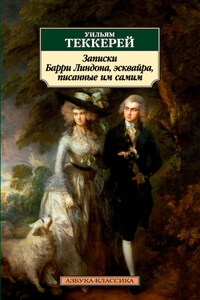CHAPTER I
THE VOICES IN THE CHIMNEY
"Wherefore and whence we are ye cannot know."
"The Winds' Song," Light of Asia.– Edwin Arnold
The first thing that little Gratian Conyfer could remember in his life was hearing the wind blow. It had hushed him to sleep, it had scolded him when he was naughty, it had laughed with him at merry times, it had wailed and sobbed when he was in sorrow.
For the wind has many ways of blowing, and no one knew this better than Gratian, and no one had more right to boast an intimate acquaintance with the wind than he. You would be sure to say so yourself if you could see the place where the boy was born and bred – "Four Winds Farm."
It had not come by this name without reason, though no one still living when Gratian was a boy, could tell how long it had borne it, or by whom it had been bestowed. I wish I could take you there – were it but for five minutes, were it even in a dream. I wish I could make you feel what I can fancy I feel myself when I think of it – the wonderful fresh breath on one's face even on a calm day standing at the door of the farm-house, the sense of life and mischief and wild force about you, though held in check for the moment, the knowledge that the wind – the winds rather, all four of them, are there somewhere, hidden or pretending to be asleep, maybe, but ready all the same to burst out at a moment's notice. And when they do burst out – on a blowy day that is to say – ah then, I wouldn't advise you to stand at the farm-house door, unless you want to be hurled out of the way more unceremoniously than you bargained for.
It was a queer site perhaps to have chosen for a dwelling-place. Up among the moors that stretched for miles and miles on all sides, on such lofty ground that it was no wonder the trees refused to grow high, for it was hard work enough to grow at all, poor things, and to keep their footing when they had done so. They did look battered about and storm-tossed – all except the pines, who are used to that kind of life, I suppose, and did their duty manfully as sentinels on guard round the old brown house, in which, as I said, the boy Gratian first opened his baby eyes to the light.
Since that day nine winters and summers had passed. He was called a big boy now. He slept alone in a room away up a little stair by itself in a corner – an outside corner – of the farm-house. He walked, three miles there and three miles back, to school every day, carrying his books and his dinner in a satchel, along a road that would have seemed lonely and dreary to any but a moorland child – a road indeed that was little but a sheep-track the best part of the way. He spent his evenings in a corner of the large straggling kitchen, so quiet that no one would have guessed a child, above all a boy, was there; his holidays, the fine weather ones at least, out on the moor among the heather for the most part, in the company of Jonas the old shepherd, and Watch the collie dog. But he never thought his life lonely, though he had neither brother nor sister, and no one schoolfellow among the score or so at the village school that was more to him than another; he never thought about himself at all in that sort of way; he took for granted that all about him was as it should be, and if things seemed wrong sometimes he had the good sense to think it was very probably his own fault.
But he found things puzzling; he was a child who thought a great deal more than he spoke; he would not have been so puzzled if he had had more of the habit of putting his thoughts into words. Hitherto it had not seemed to matter much, life had been a simple affair, and what he did not understand he forgot about. But lately, quite lately, he had changed; his soul was beginning to grow, perhaps that was it, and felt now and then as if it wanted new clothes, and the feeling was strange. And then it isn't everybody who is born and bred where the four winds of heaven meet!
What was Gratian thinking of one Sunday evening when, quiet as usual, he sat in his corner? He had been at church and at the Sunday School; but I am afraid he could not have told you much about the sermon, and in his class he had been mildly reproved for inattention.
"You must go to bed," said his mother; "it is quite time, and you seem sleepy."
The boy rose and came round to the table at which sat his father and mother, each with a big book which Gratian knew well by sight – for it was only on Sunday evenings that the farmer and his wife had time for reading, and their books lasted them a good while. In fact they had been reading them fifty-two evenings of each year ever since the boy could recollect, and the marks, of perforated cardboard on green ribbon – his father's bore the words "Remember me," and his mother's "Forget me not" – which once, before he could read, he had regarded with mysterious awe, did not seem to him to have moved on many pages.
He stood at the table for a moment before his mother looked up; he was vaguely wondering to himself if he too would have a big book with a green ribbon-marker when he should be as old as his father and mother; did everybody? he felt half-inclined to ask his mother, but before he had decided if he should, she scattered his thoughts by glancing up at him quickly. She was quick and alert in everything she said and did, except perhaps in reading.














